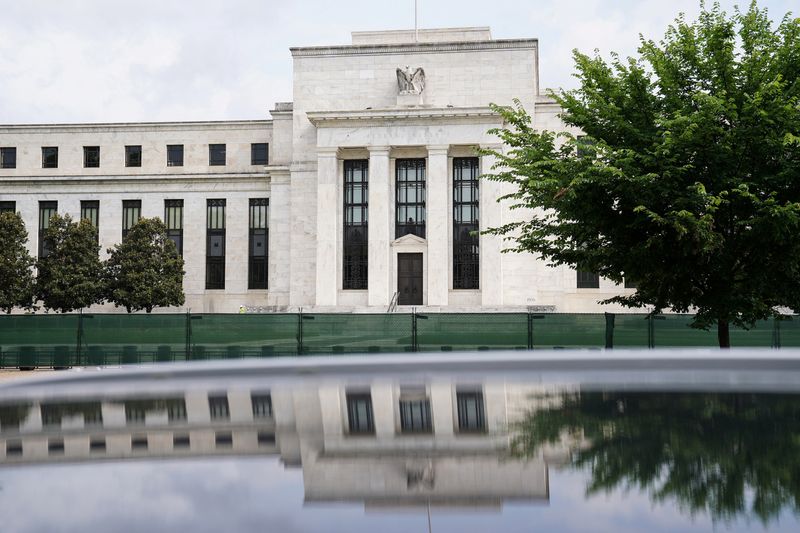
Would a December Fed rate cut be a mistake? Macquarie weighs in
Investing.com — Federal Reserve speakers have recently expressed a less certain tone on recent efforts to bring inflation down following two months of hot inflation prints, sparking debate on whether a December rate cut could be a mistake. But analysts from Macquarie point to a key inflation metric that continues to make the case for another rate cut.
“The view that a Fed cut in December could be an ‘error’ is a view we’ve said we’re sympathetic to too, but only if five-year inflation break-evens were to rise above 2.5%,” analysts from Macquarie said in a recent report.
Five-year break-evens — a closely watched gauge of inflation expectations — have jumped markedly since September to about 2.35%, but this is “not high enough to warrant a panic about the inflation outlook yet,” the analysts added.
The move higher in inflation expectations followed two recent “hot” readings in core PCE inflation, showing annualized rates above 3% in September and October, raising concerns about reaching the Fed’s 2% target.
But these hotter-than-expected readings followed a period where core PCE inflation annualized at less than 2% in three out of four months from May to August, the analysts said.
President-elect Donald Trump’s policy agenda that will likely include tariffs is “ostensibly inflationary,” the analyst said.
Fresh worries about inflation are expected to prompt Fed members into backing a hawkish cut at the Dec. 16-17 meeting, with projections about the economy, inflation, and rates likely to be amended.
In an event on Thursday, Federal Reserve Chair Jerome Powell acknowledged that the “economy is stronger than we thought it was going to be in September…the labor market is better, and inflation is coming a little higher.”
This allows the Fed to be a “little more cautious as we try to find neutral rate,” he added.
Even if the Fed cuts next week, it would likely have to change the narrative from one of “certitude about rate cuts to one of caution, expressed primarily through the dots, whose year-end ranges will likely widen and rise next week,” the analysts said.

